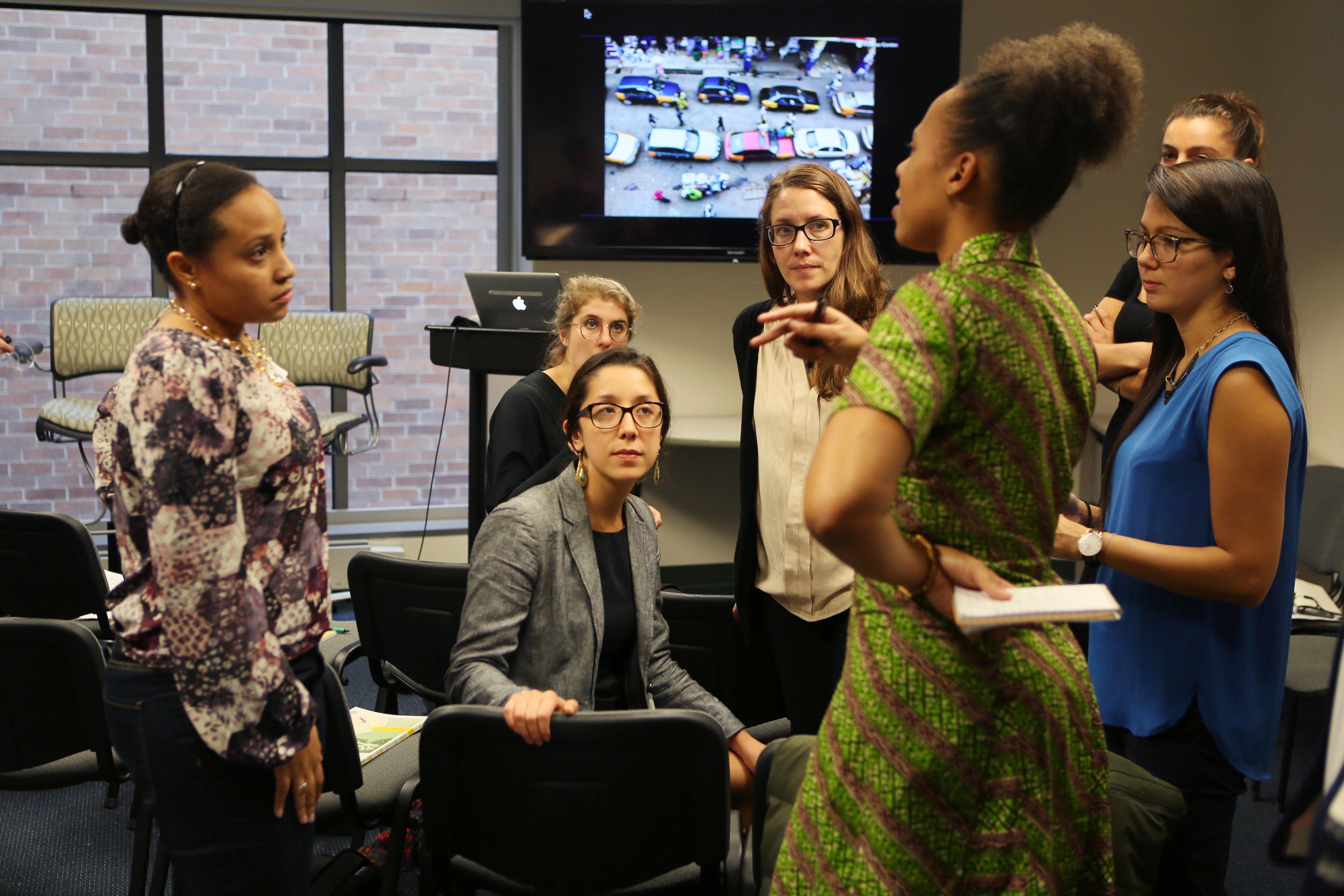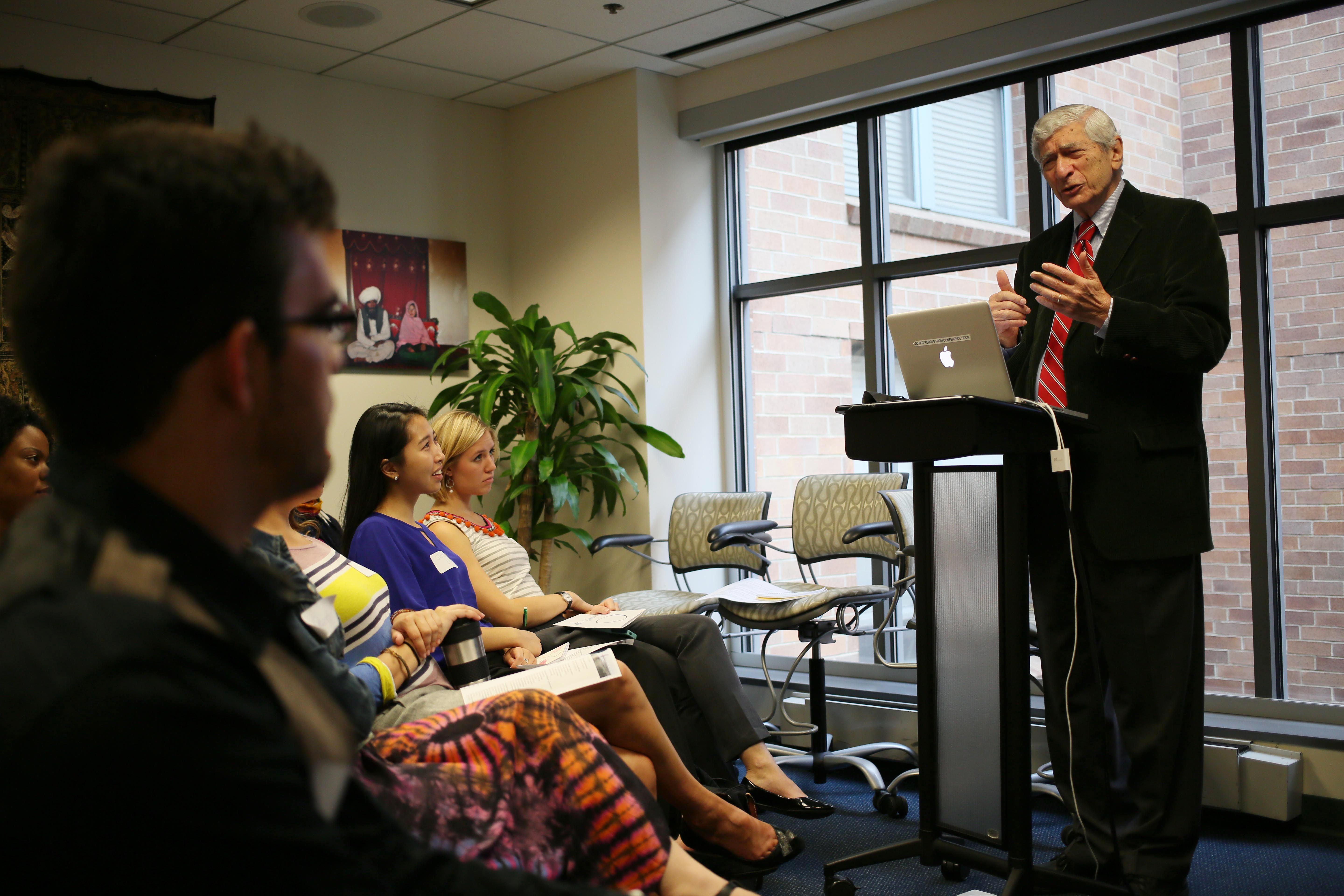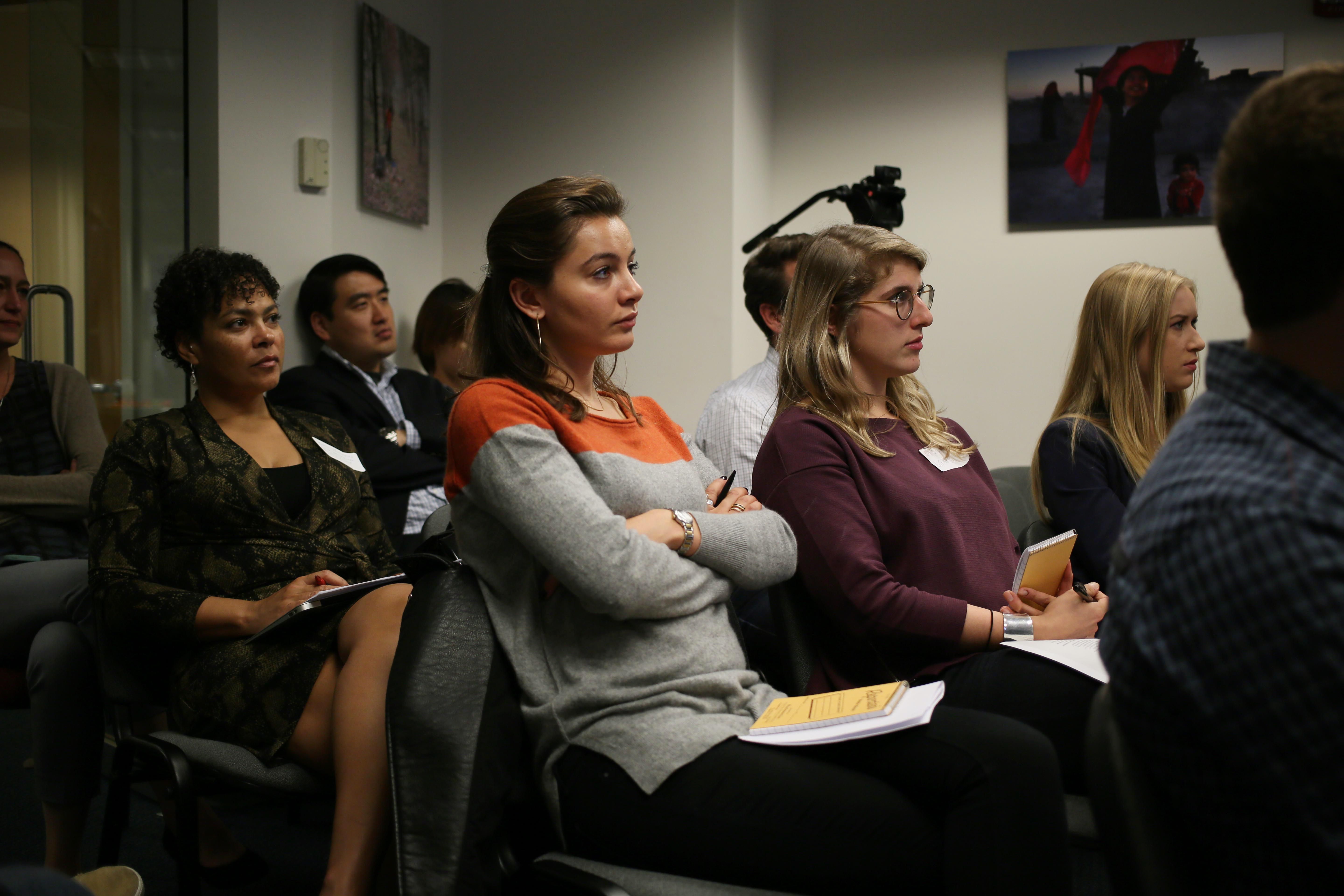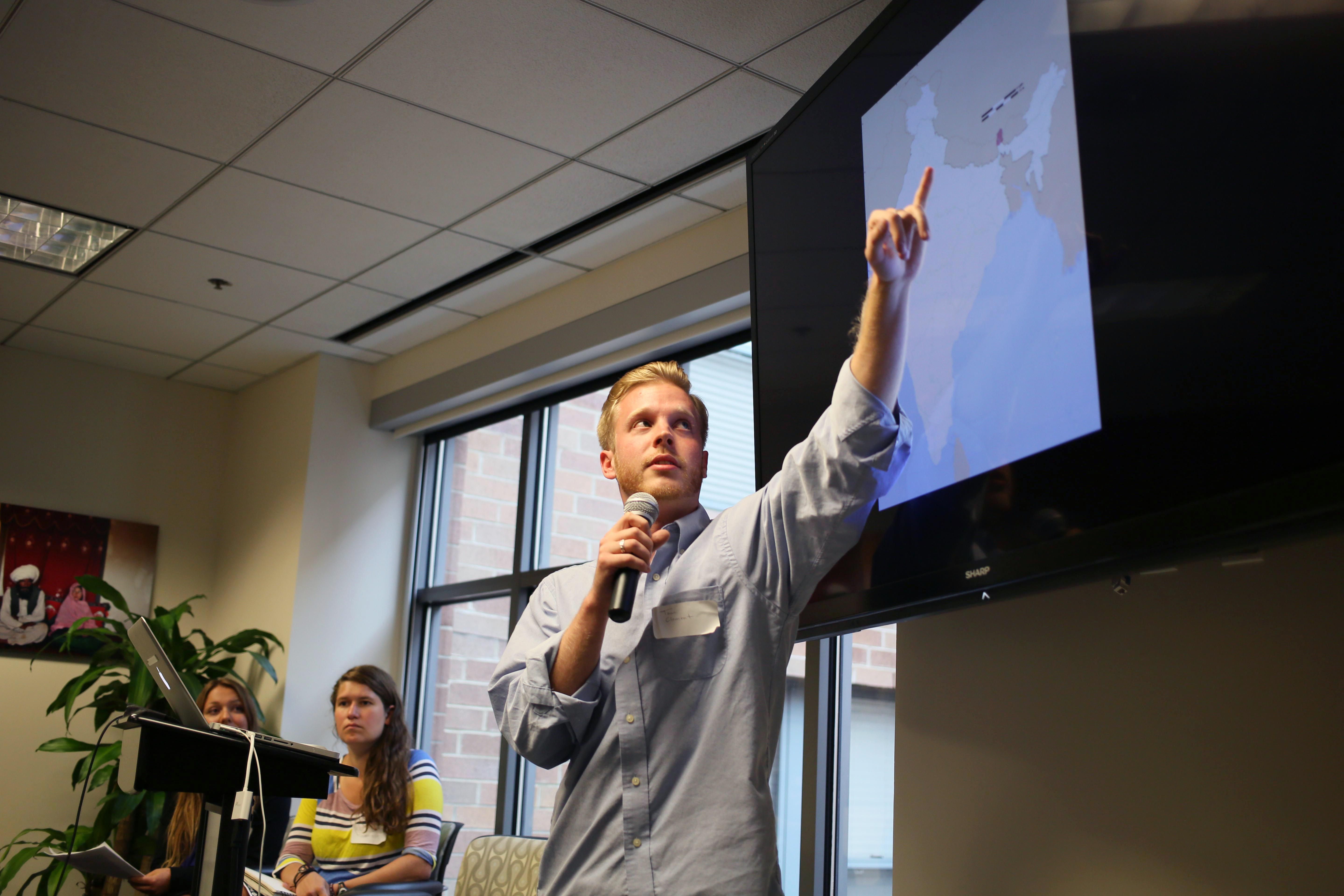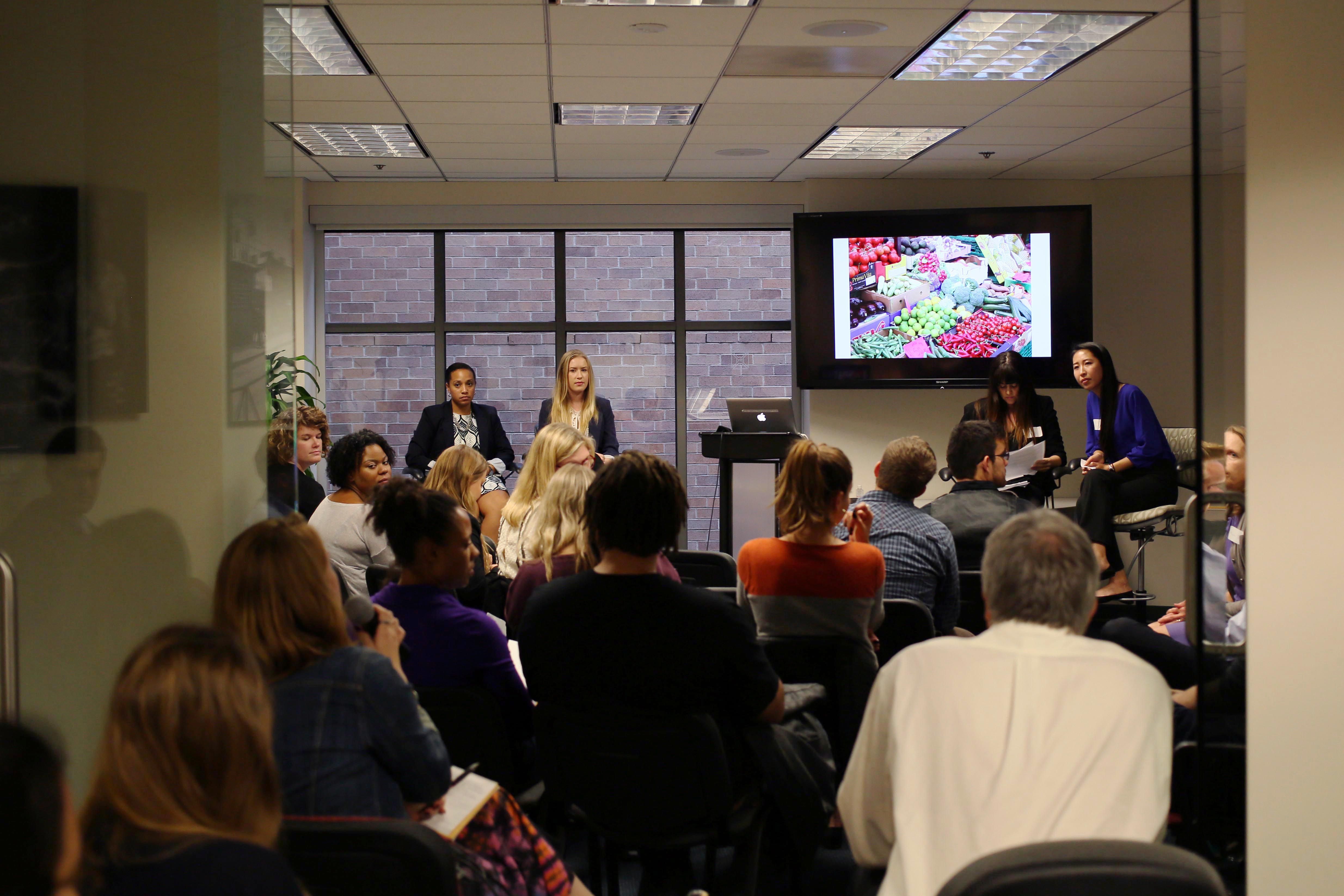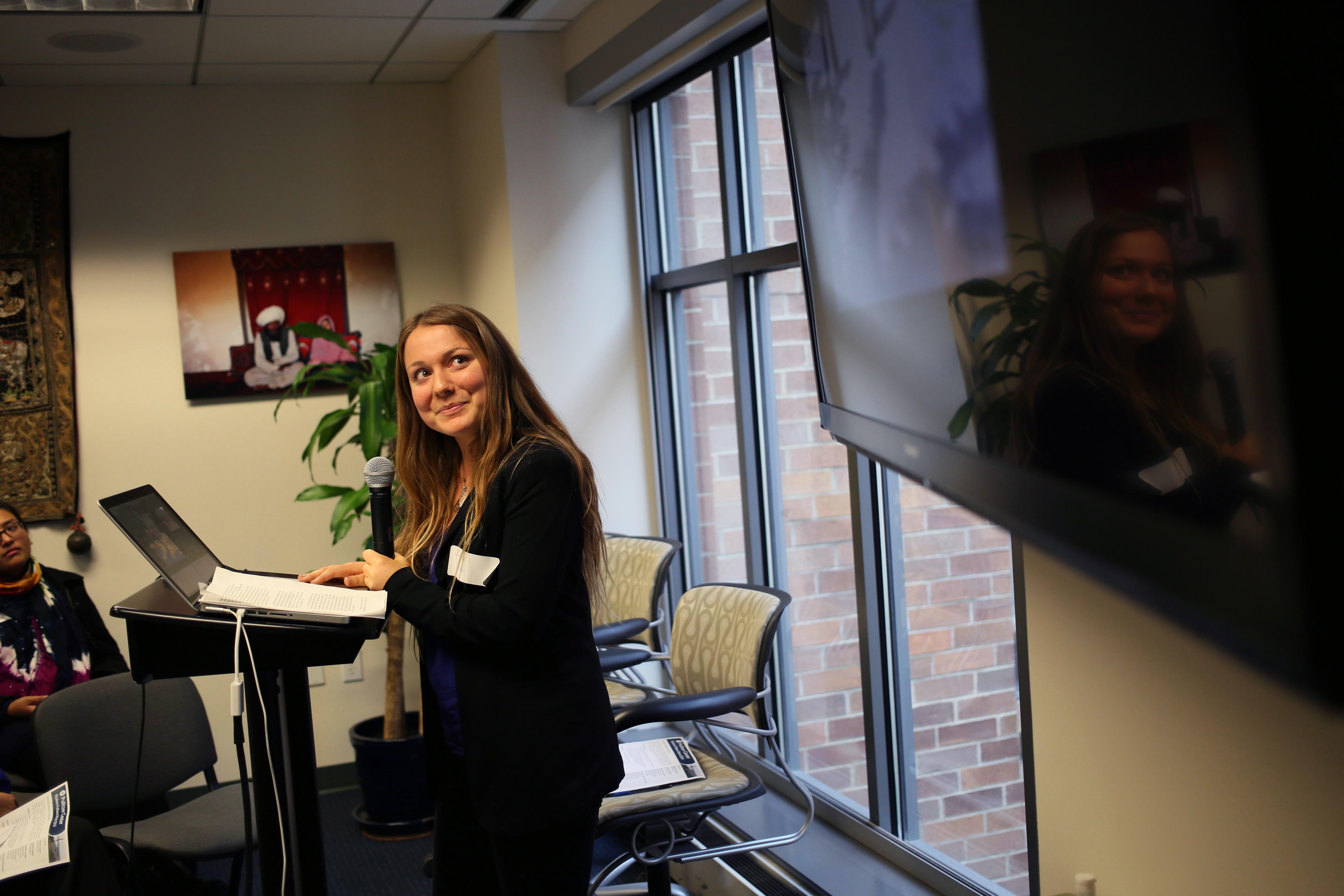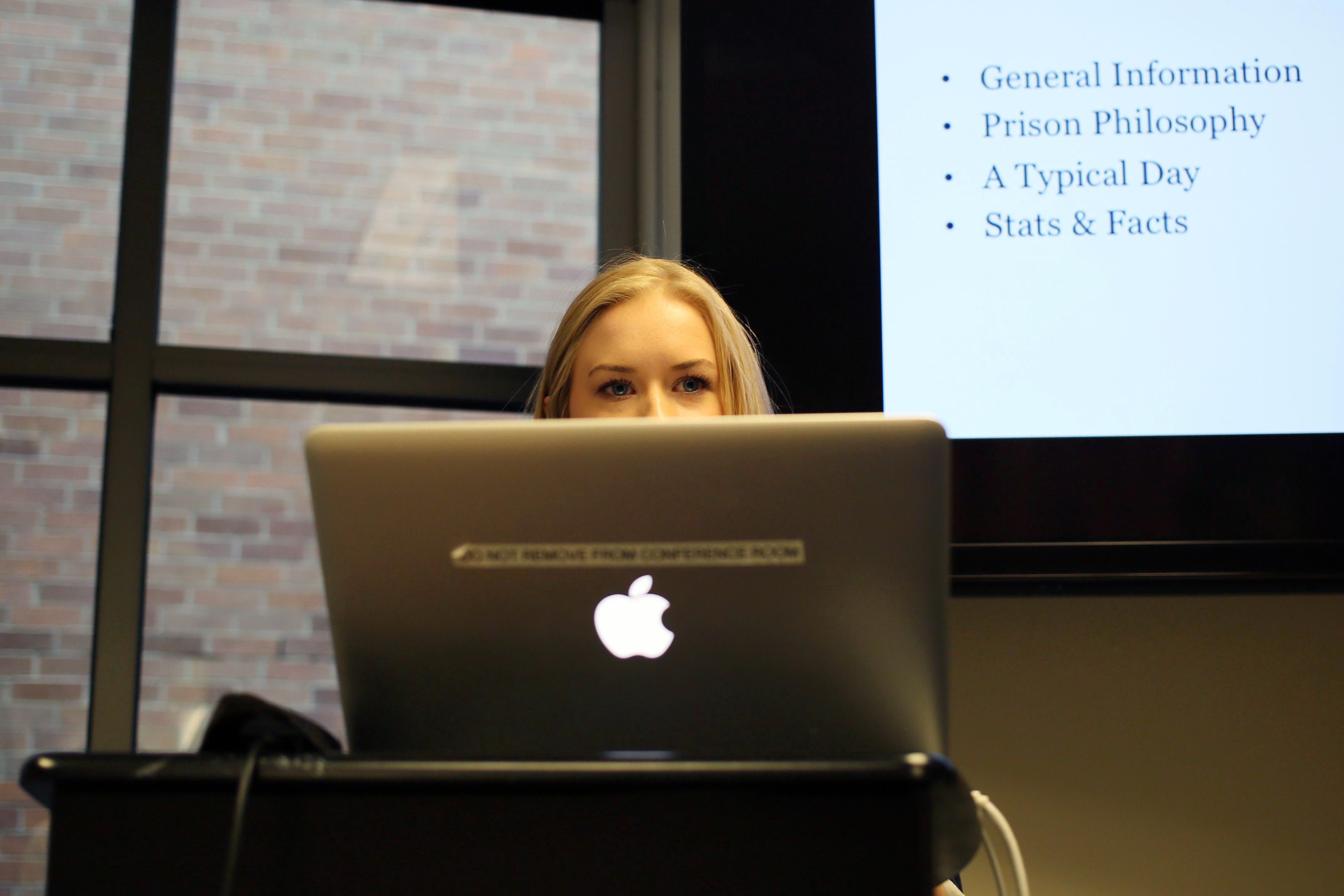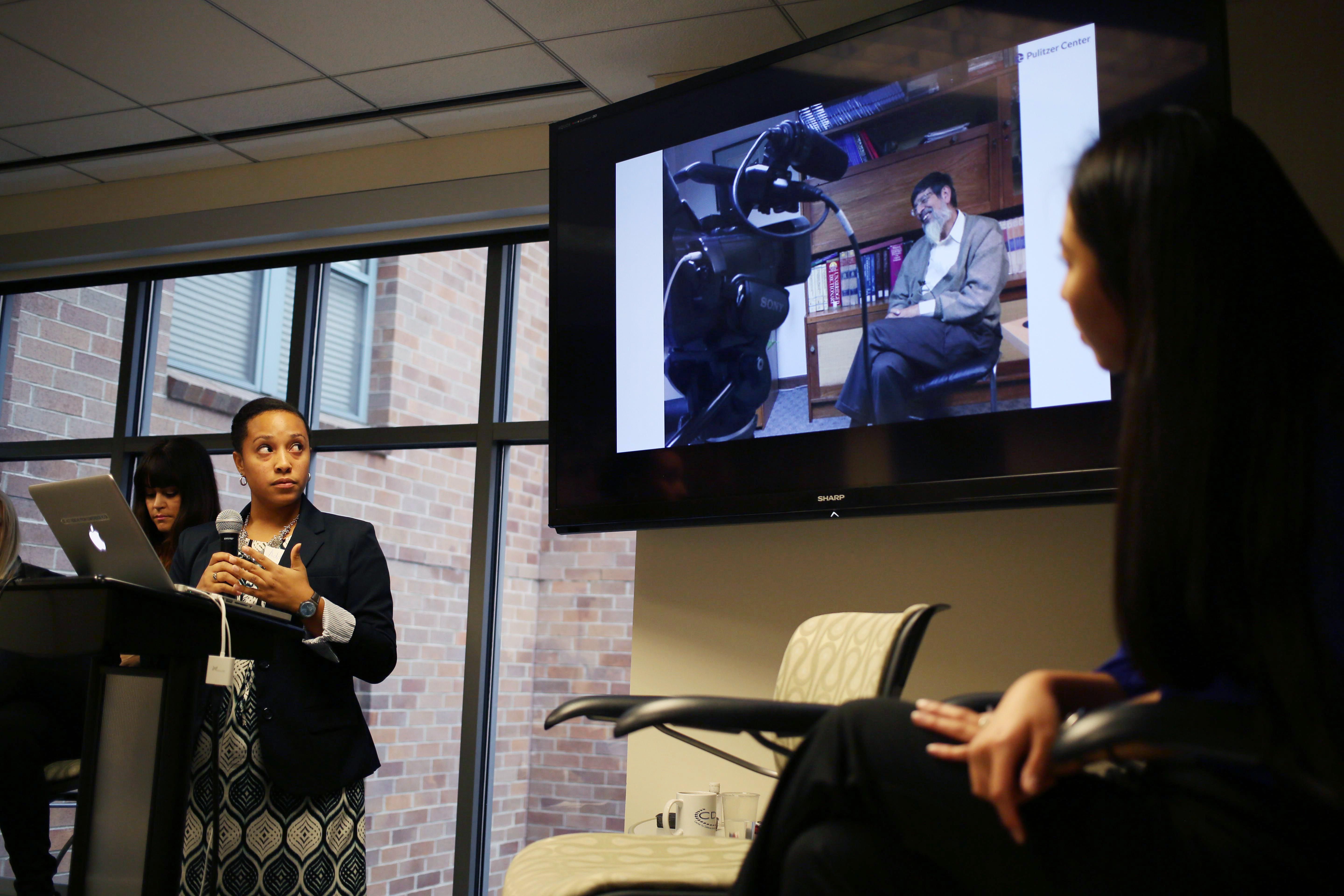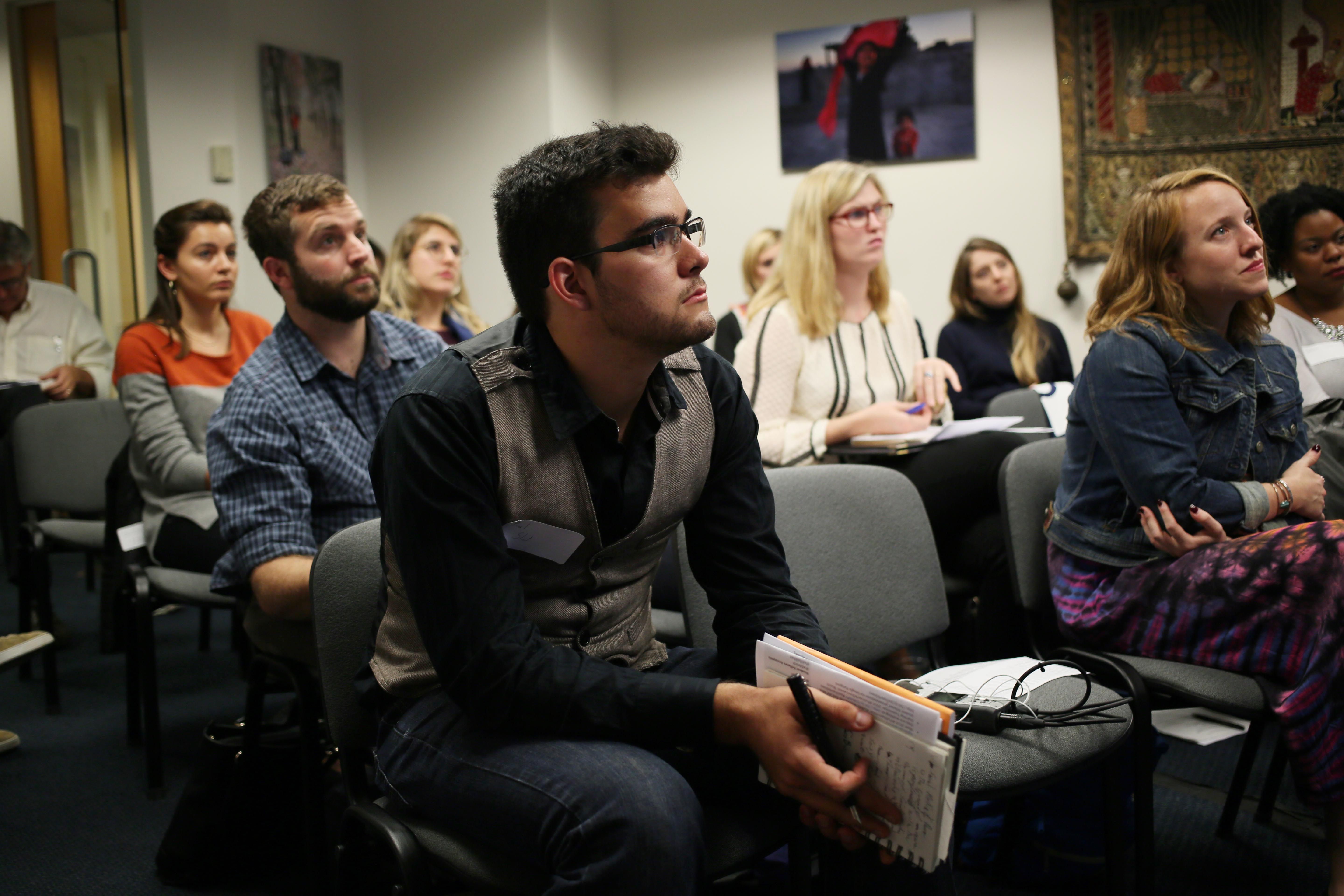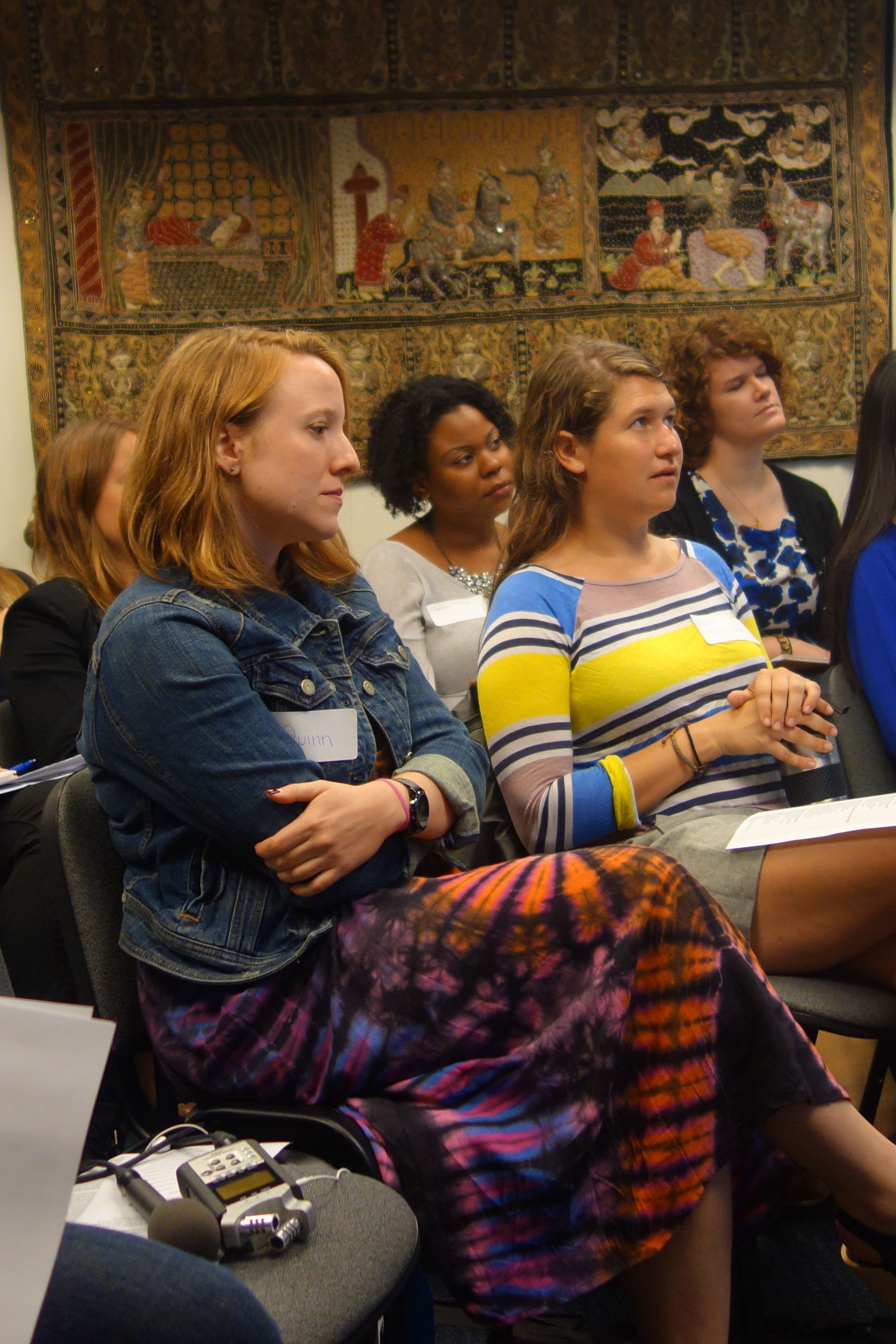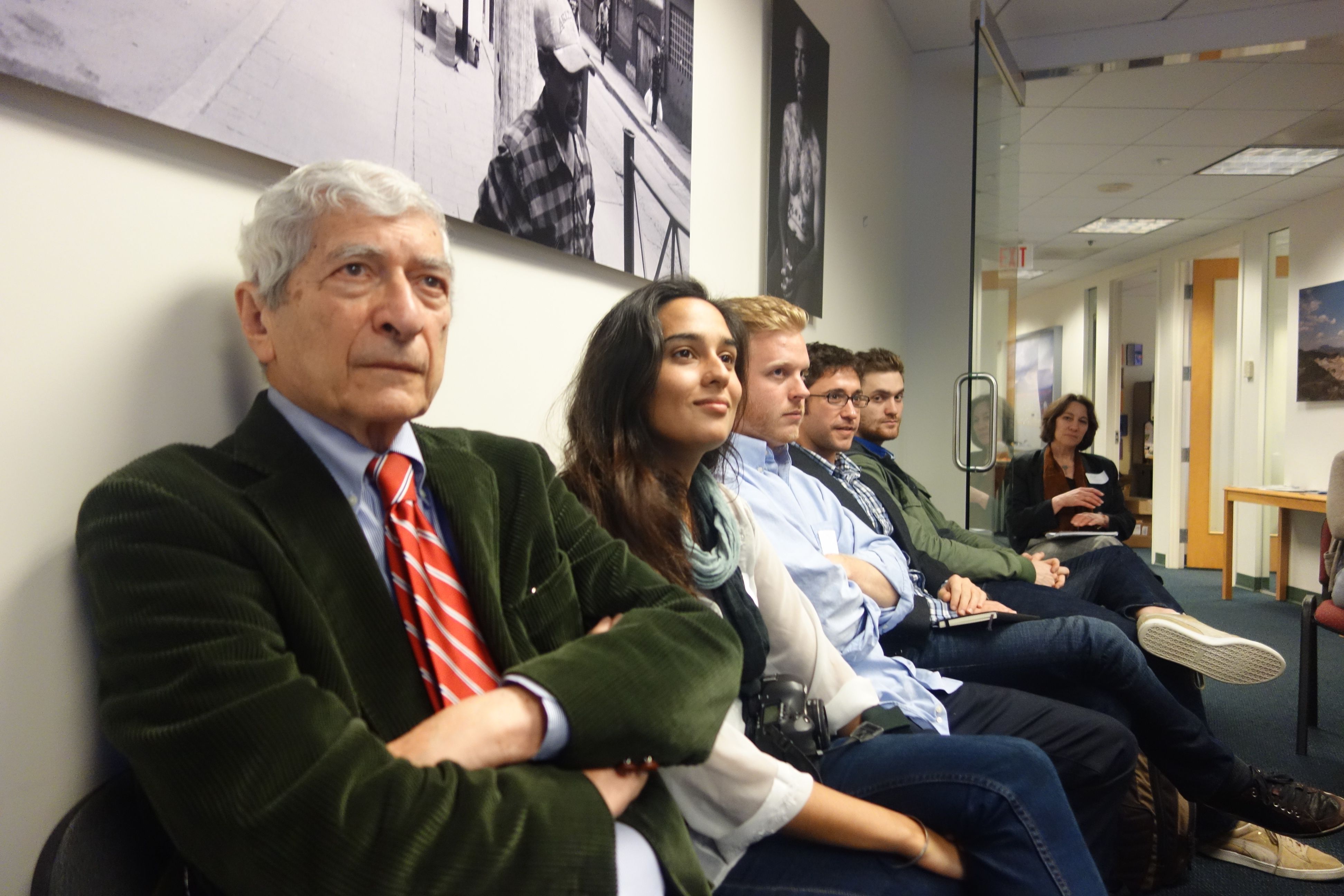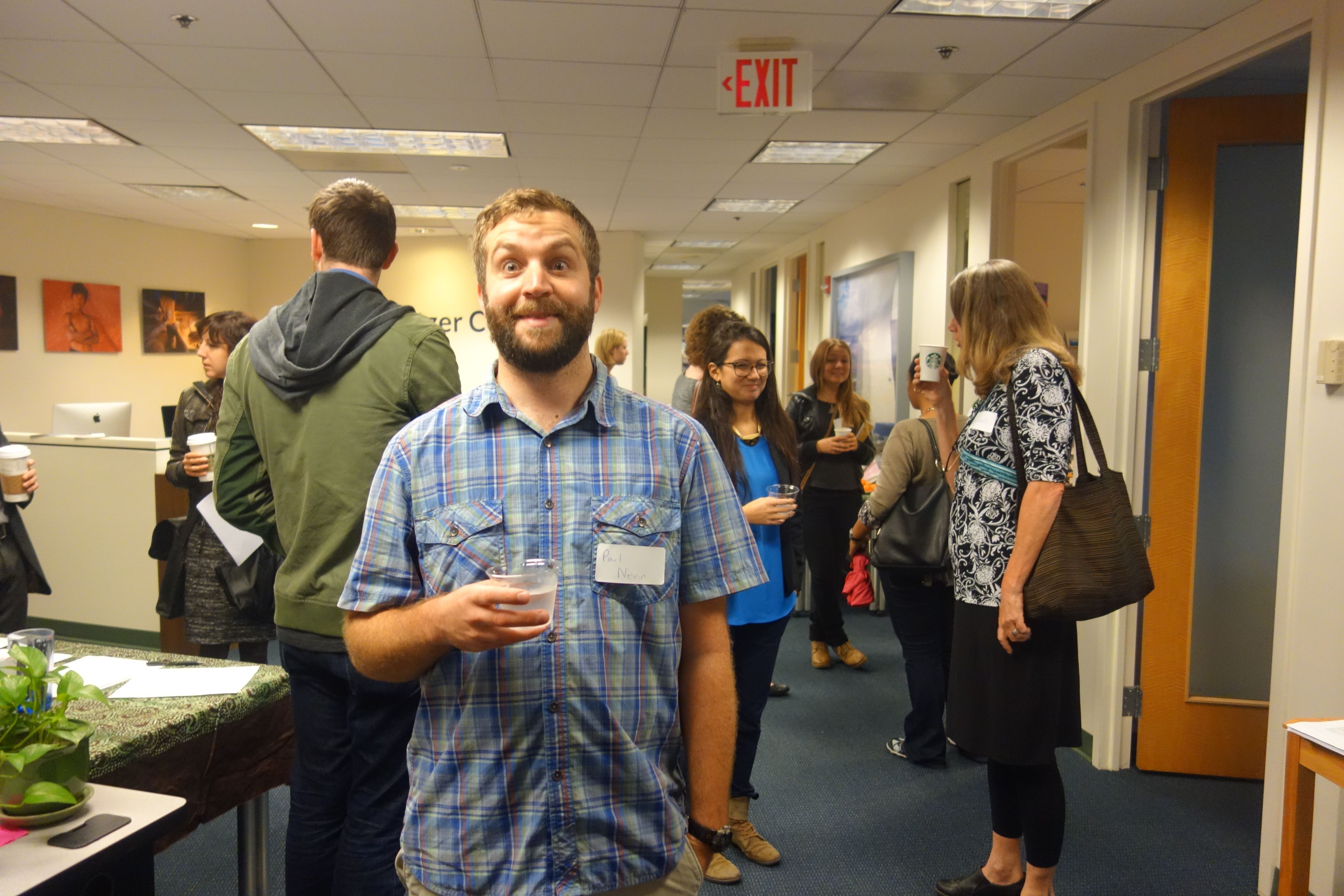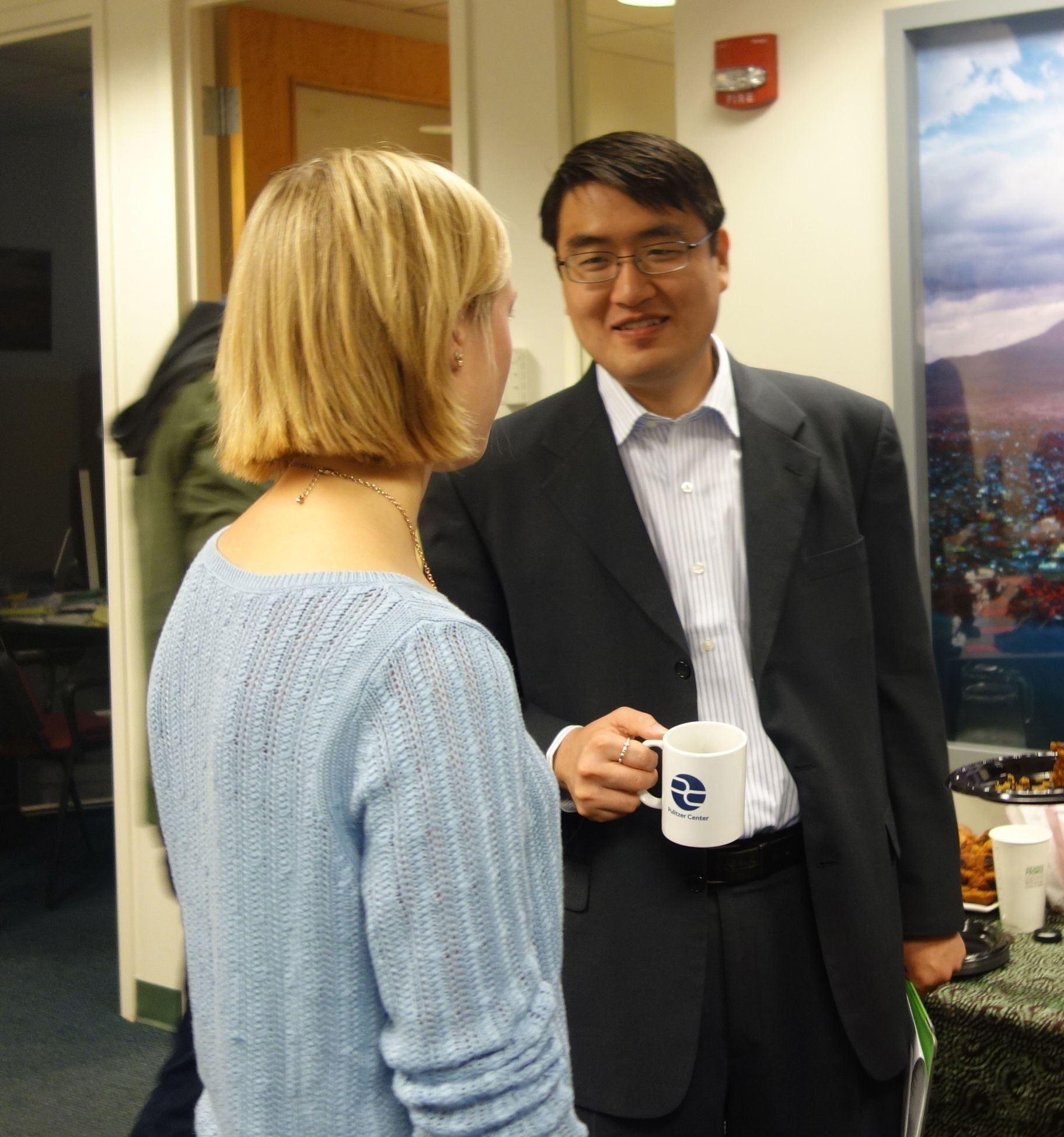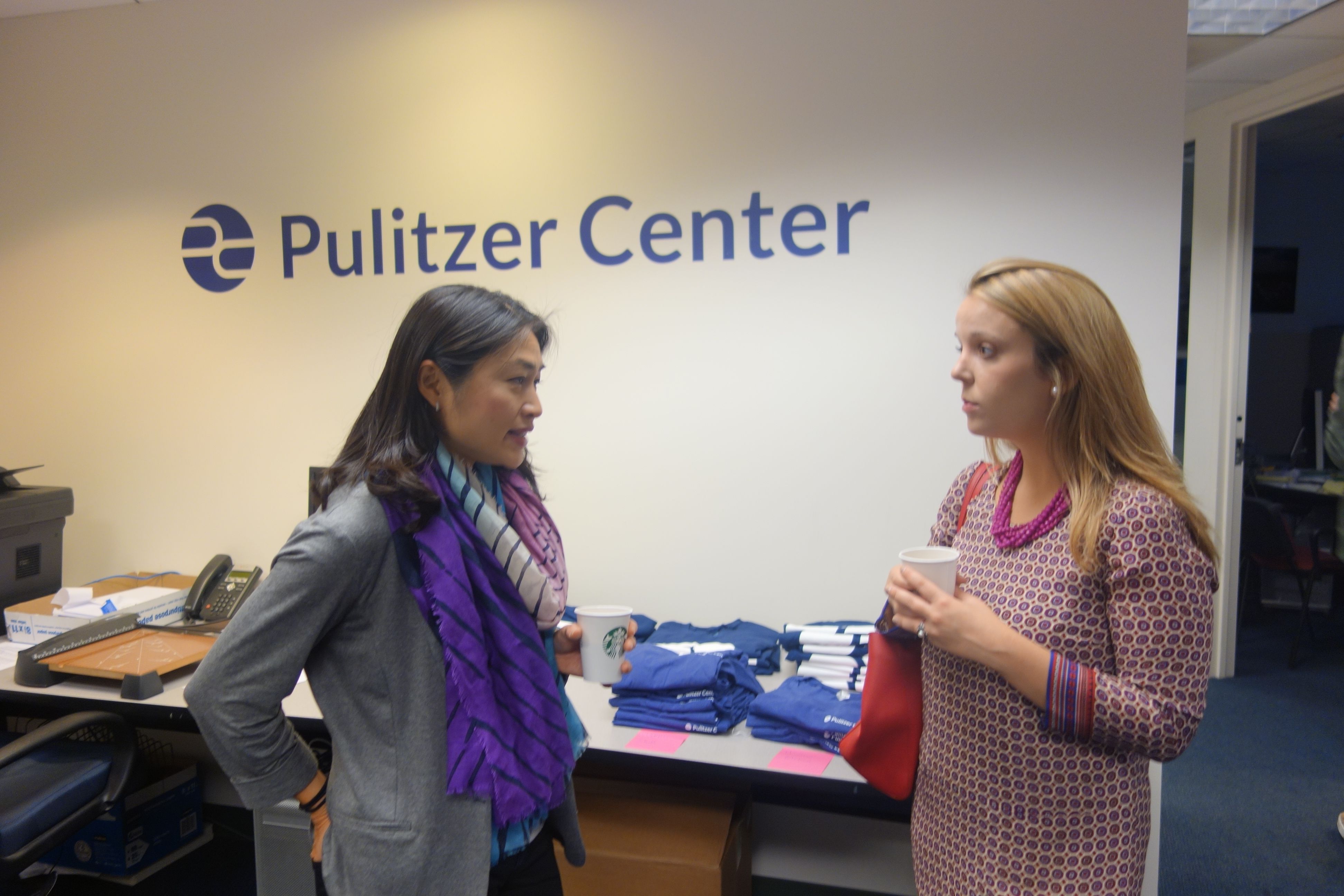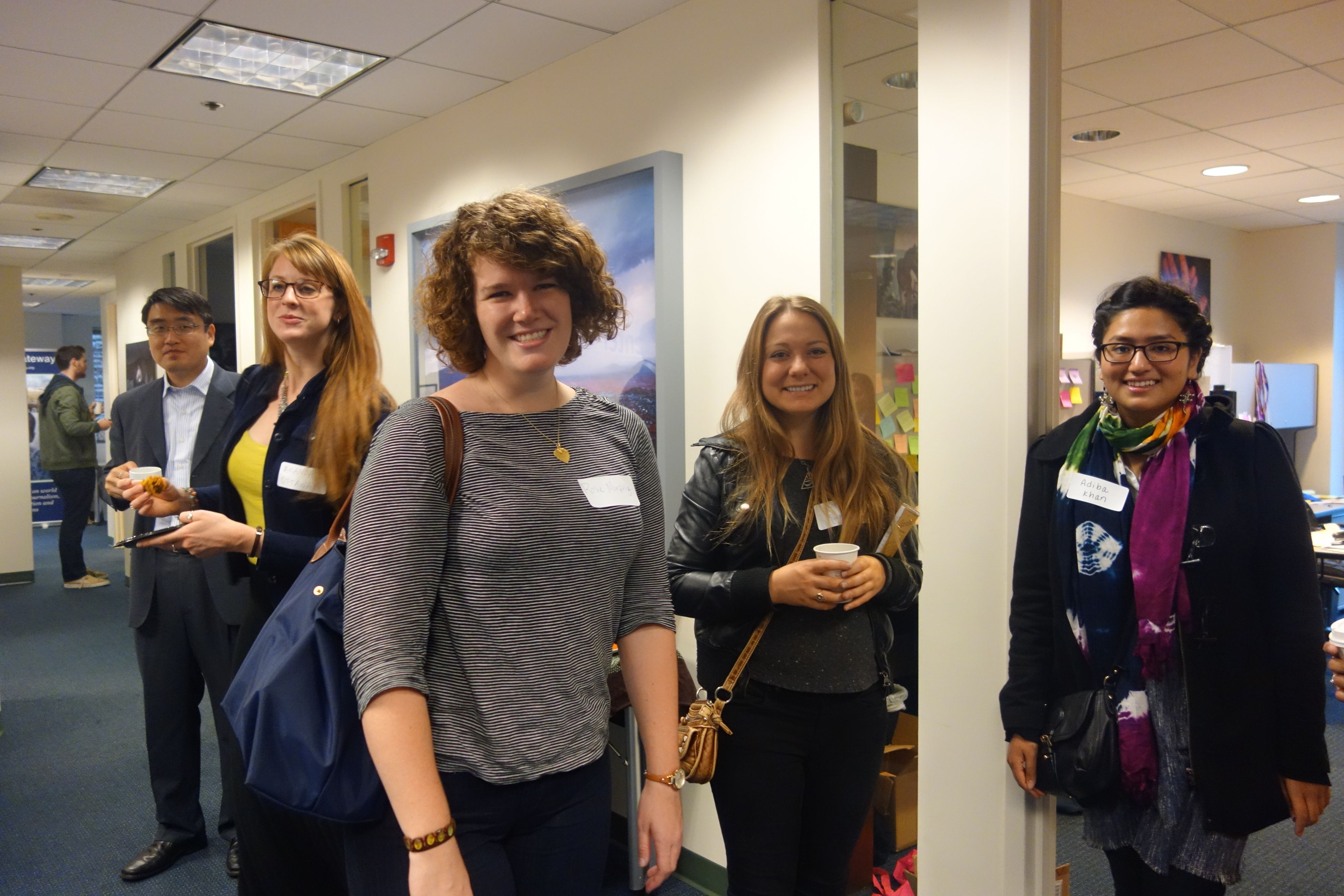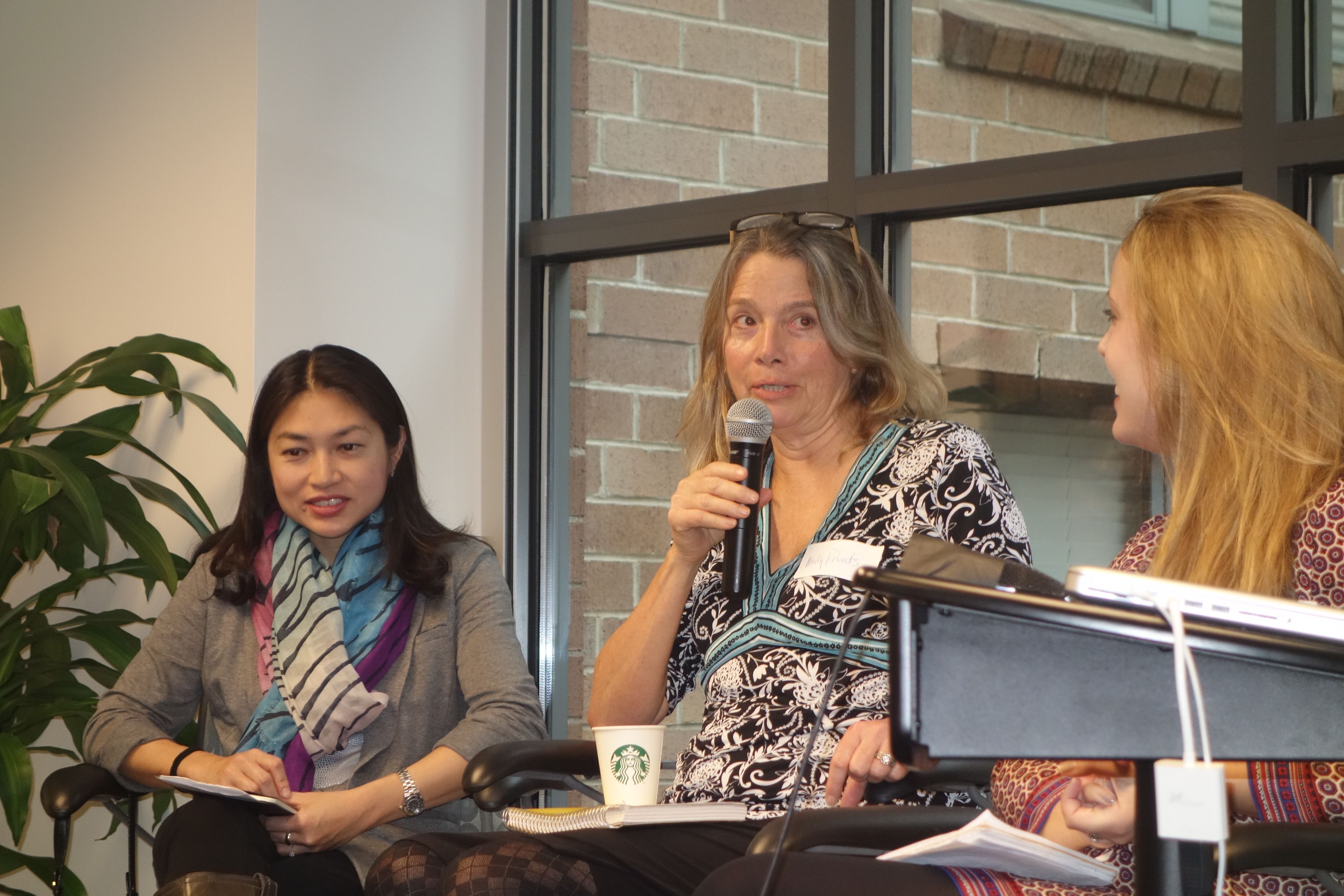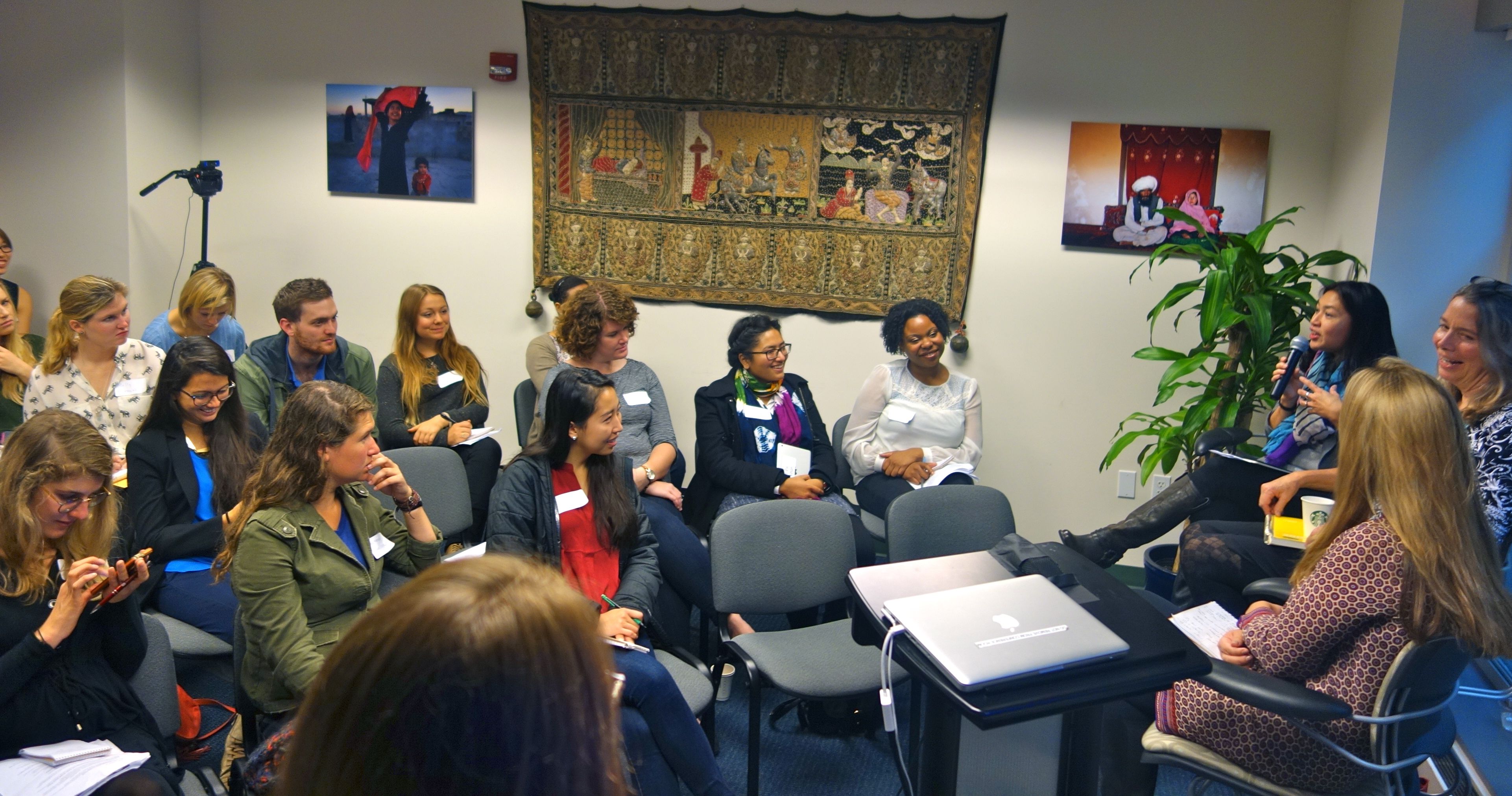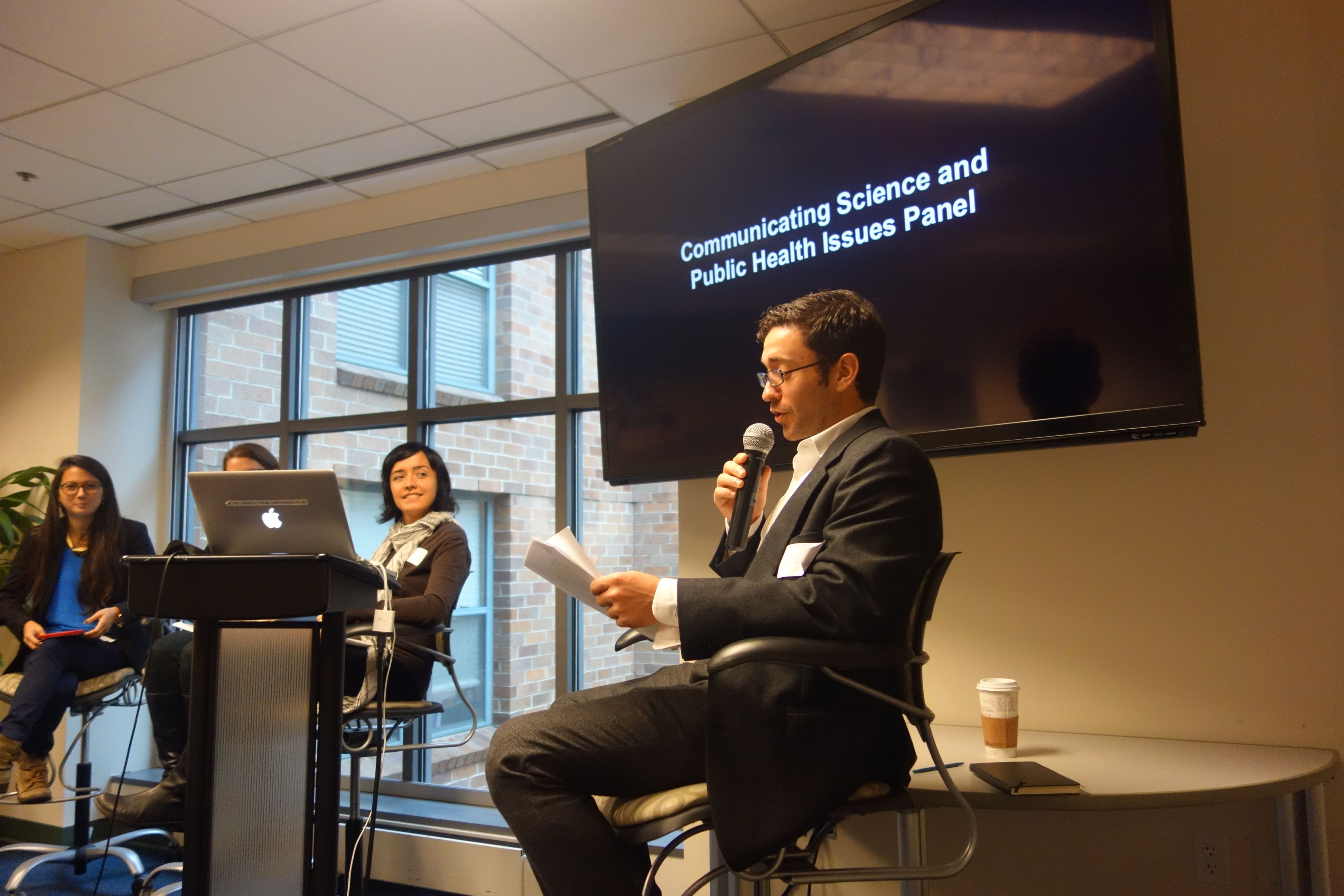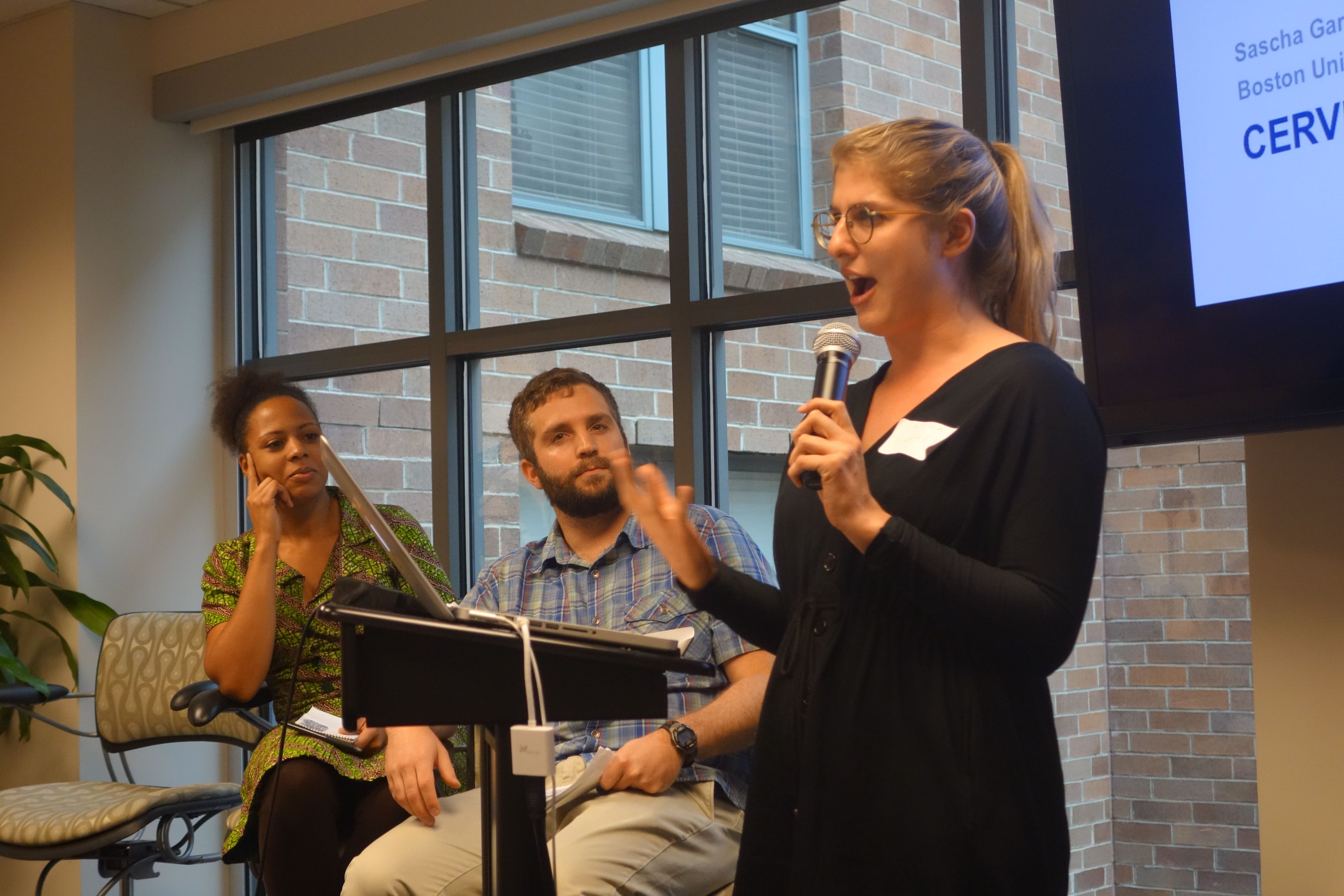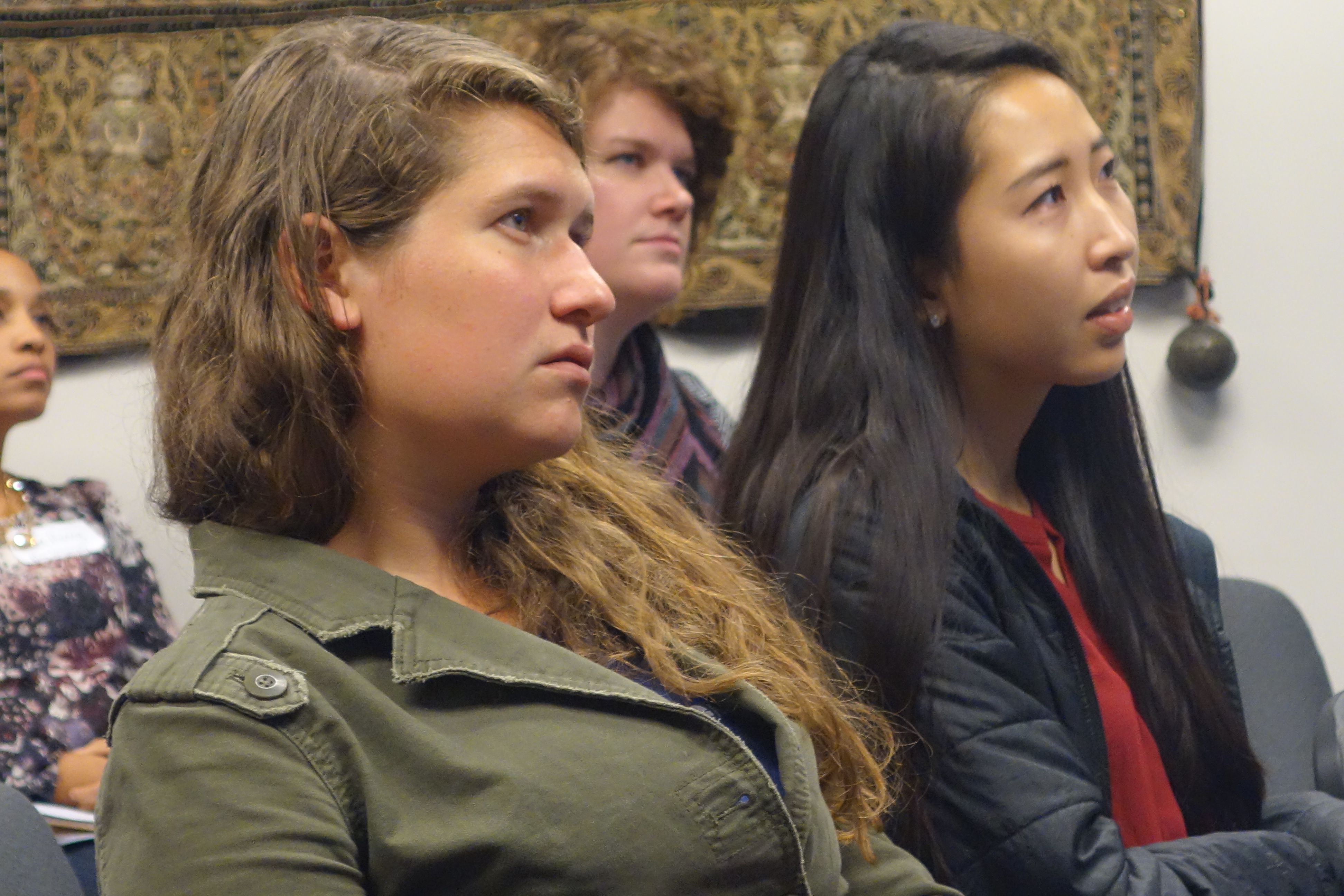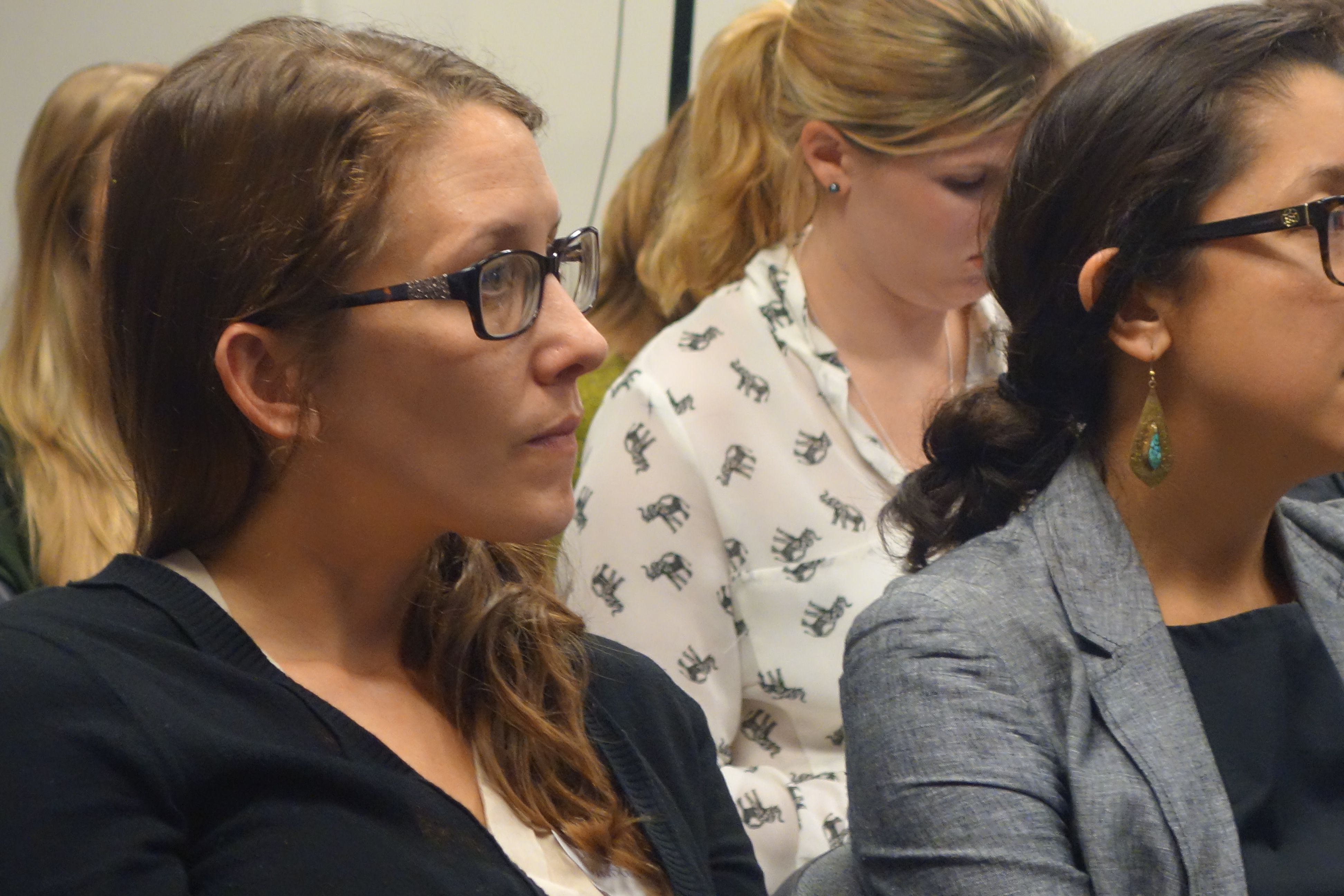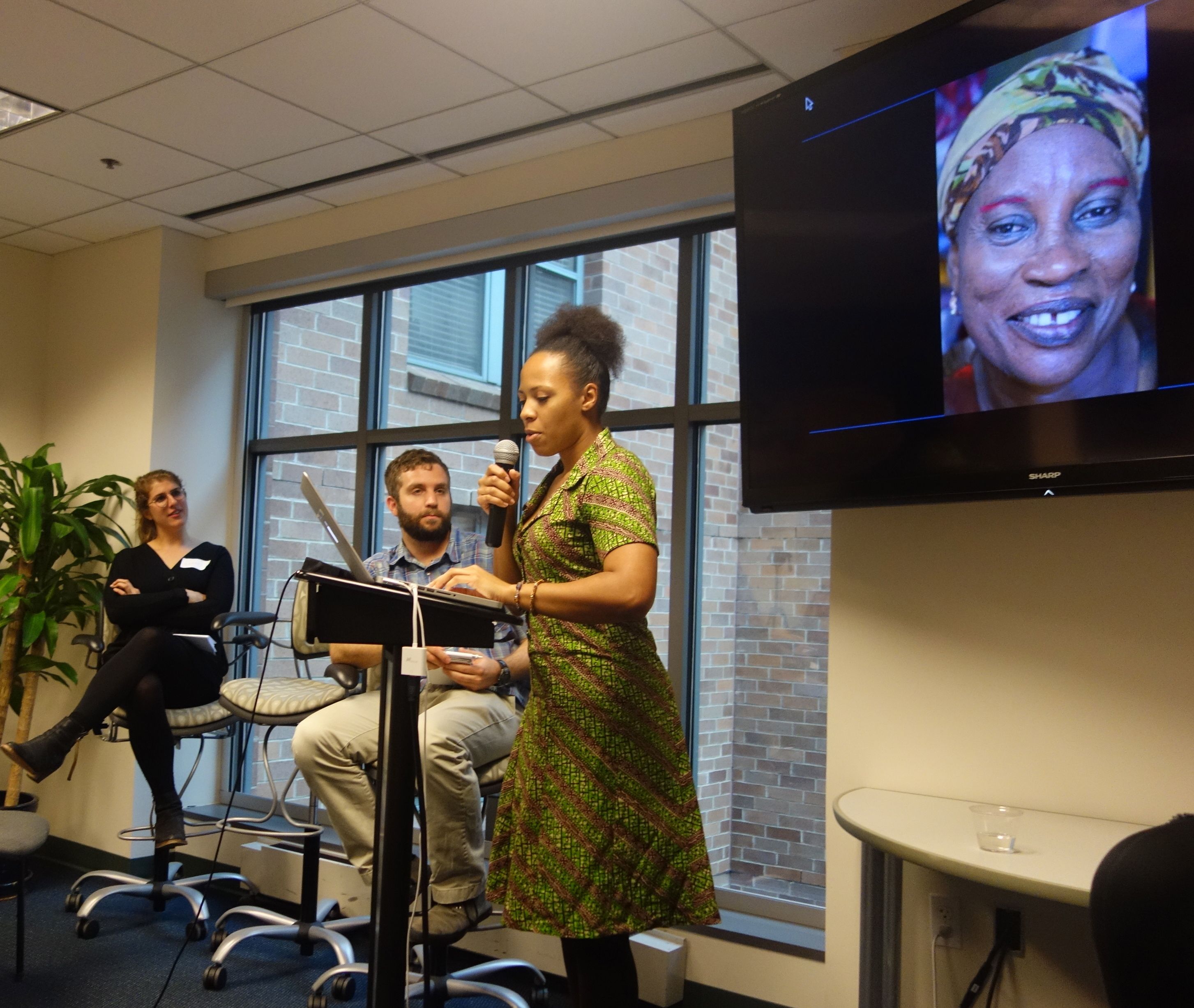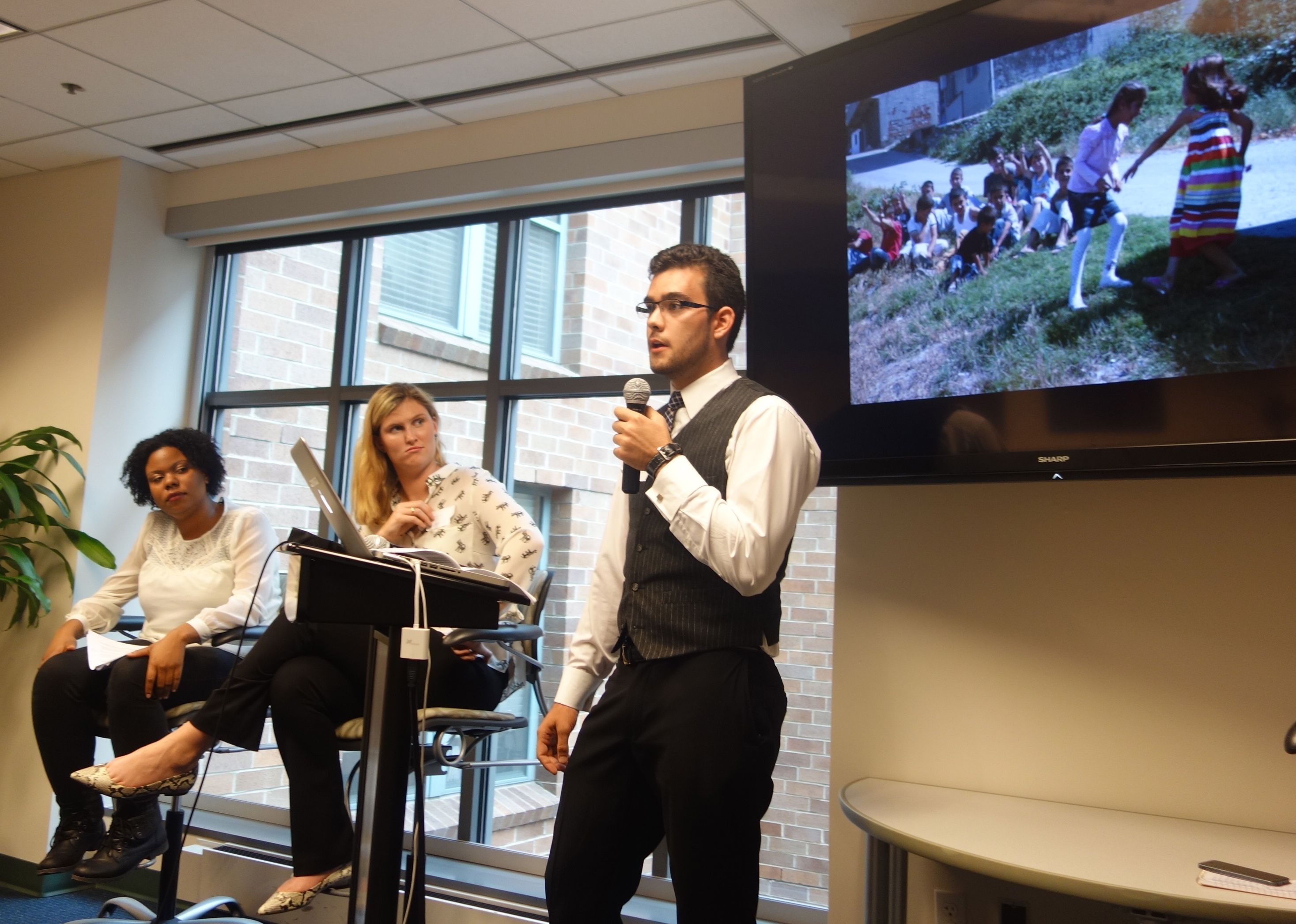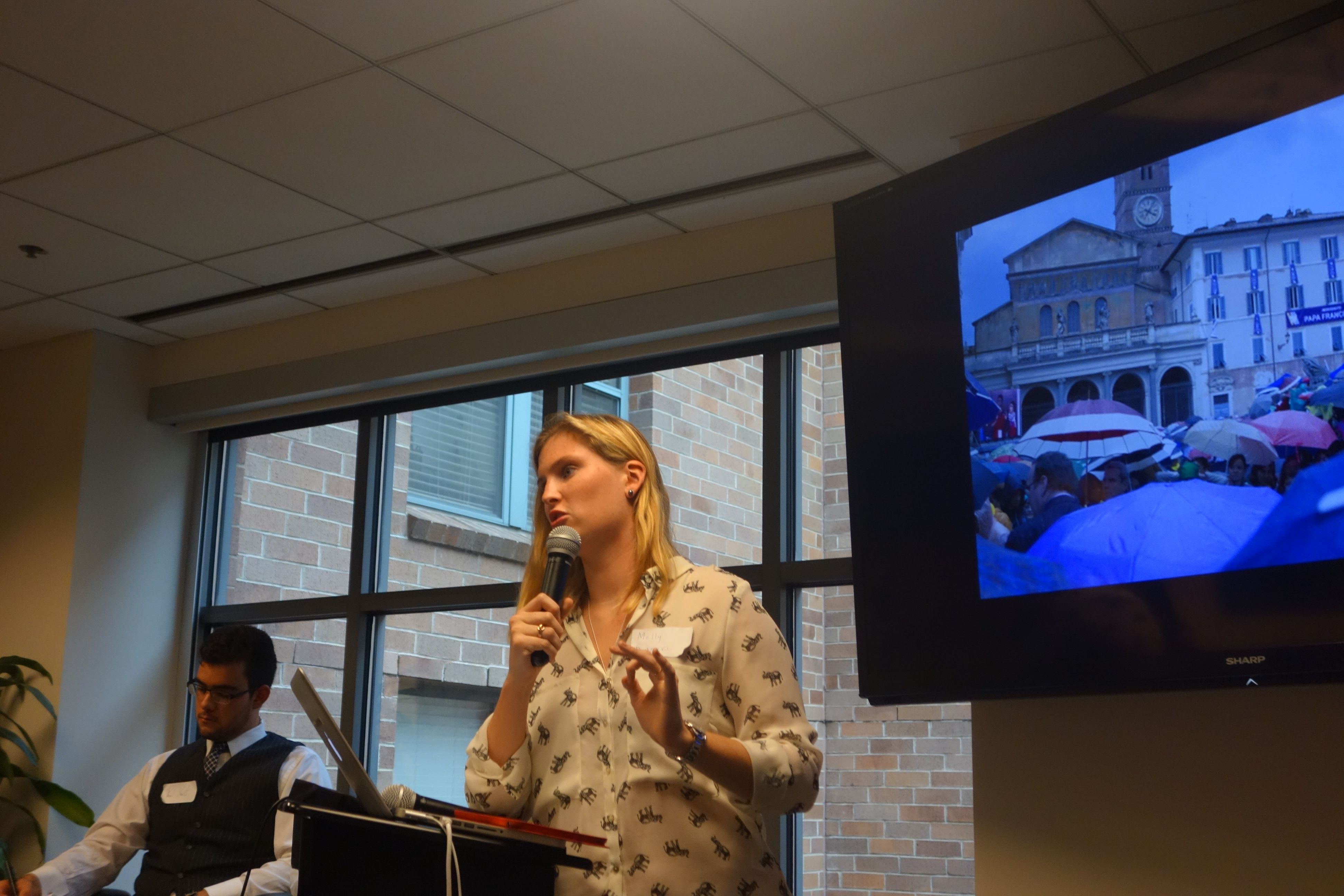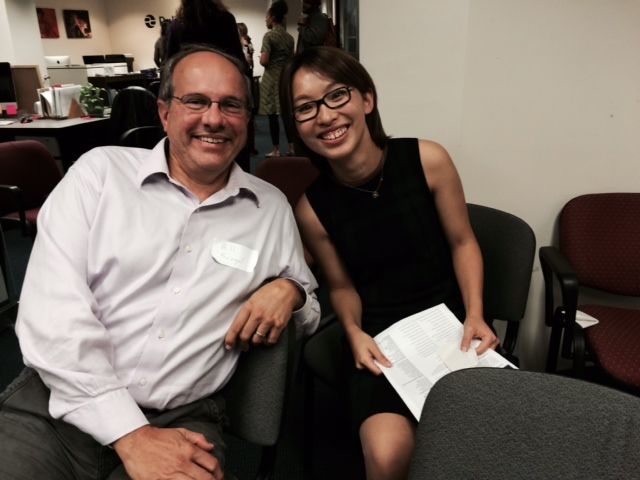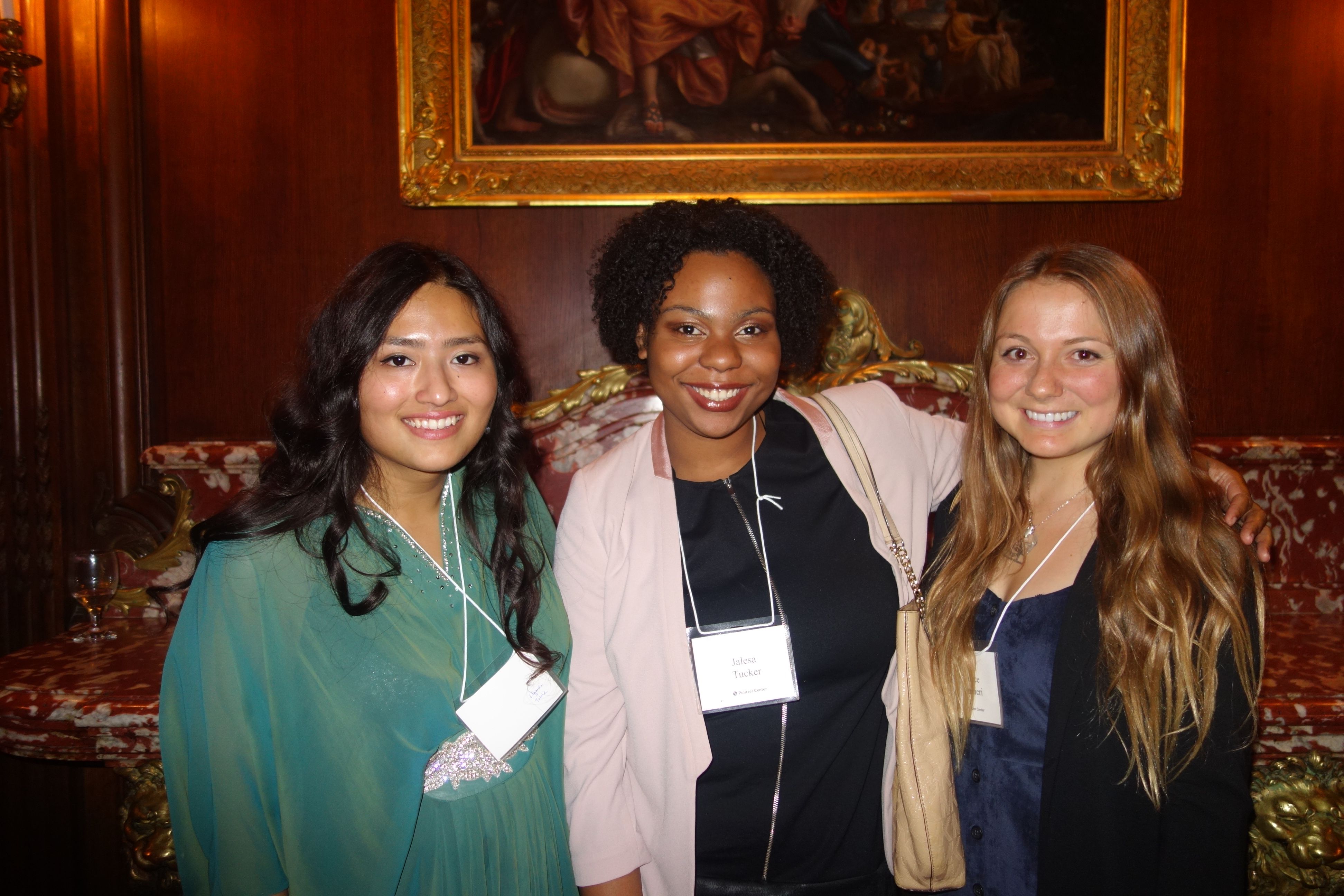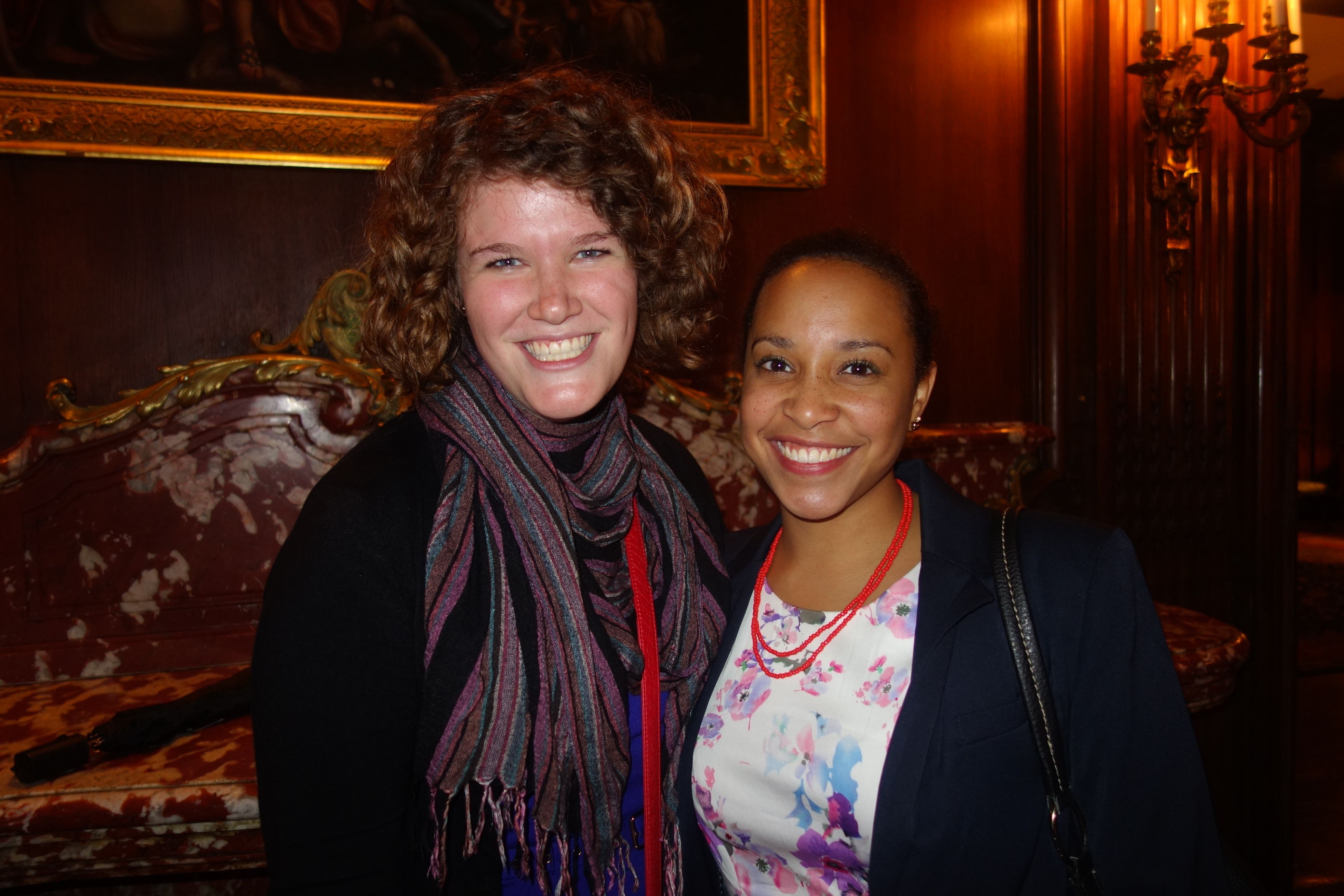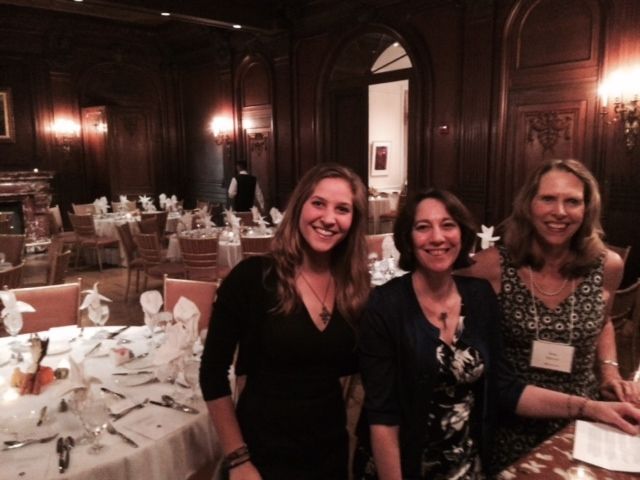“It was a golden era of journalism that none of us appreciated at the time,” Pulitzer Center Executive Director Jon Sawyer said, recalling his early days as a St. Louis Post-Dispatch Washington bureau chief. “But I can say, this is the most exciting time I’ve seen for journalism, in my lifetime,” he told a group of 2014 Pulitzer Center student fellows when speaking about new and creative platforms of storytelling.
The Pulitzer Center was hosting its first-ever Campus Consortium Student Fellows Washington Weekend on Friday, October 10, and Saturday, October 11.
Seventeen of this year’s 21 student fellows had traveled from our Campus Consortium universities throughout the country to share their experiences and lessons learned while reporting abroad.
Several Pulitzer Center grantees and staff members joined the student fellows in lively discussions on the environmental, health and social crises that these journalists helped bring to light. Topics ranged from bridging gaps to confronting racism and "being prepared" for the unexpected.
The Environment and Climate Change
“I wanted to capture how individuals and families in rural towns were adapting to the challenges associated with climate change. They found innovative and creative—if temporary—solutions to maintain their food security,” Janice Cantieri, Washington University student fellow said, reflecting on her reporting of the sinking island of Kiribati.
Katie Mathieson of Davidson College and Tom Clement of Guilford College also went the extra mile to find pieces of reporting that would have otherwise been left untold. Clement took a chance by filming footage inside the construction of the dams changing the paths of India’s sacred rivers. Mathieson learned how to drive a stick-shift so that she could take a pick-up truck up the coast of Chile in the dead of winter to interview rural residents about how hydroelectric dams might improve energy or threaten pristine land in Patagonia.
The struggle for education equality marked the theme for the presentations by Adrianne Haney from Elon University and Jessie Li from Davidson College. Haney discussed the stigmatization of rural compared to urban students within education reform in Ecuador. Li looked for answers to how the Chinese educational system can use its existing structure to change the way people think about students with disabilities in China.
Jamie Walsh of South Dakota State University dispelled misconceptions about obesity reform in the UK. Reporting by High Point University graduate Britton Nagy on the prison system in Norway sparked debate on American prison reform.
“The more we can be informed on prison reform elsewhere, we may be able to improve prison reform here. It is not a matter of money, but rather, the conception we have of those in prison, that can make a positive difference,” Nagy said.
University of Washington fellows Adiba Khan, a communications student, and Paul Nevin, a public health student, teamed up to investigate maternal health issues in Kenya.
“This reporting fellowship was a unique opportunity for someone like me—a public health student who wouldn’t have had the exposure to global journalism otherwise,” Nevin said, thanking the Pulitzer Center.
Passionate presentations brought to life intimate stories by Sascha Garrey from Boston University and Jessica Edmond from Southern Illinois University Carbondale.
“The characters I met were conduits to bringing home this story,” Garrey said of her reporting on the difficulties Uganda faces in implementing preventative medicine for cervical cancer.
Edmond, who reported in Ghana, hopes to travel to Brazil, Jamaica and the Philippines, to continue investigating the media’s influence on young women who are pressured to bleach their skin to improve their socioeconomic status.
“Thanks to Kem and the team for this opportunity, because this was not only a growing experience for me as a photojournalist, but also a learning experience for my life,” Edmond said.
Modern Times, Migrants and Refugees
“Of all the things I've seen here in eastern Turkey, among countless Syrian refugees, bearing witness to stories of incredible grief, horror, pain and luck, the most startling has been the smiles,” Selin Thomas, Boston University student fellow, recalled of her reporting on Syrian refugees in Turkey.
Paul Short, a University of San Diego student fellow and an architecture major, discussed the housing of displaced people in Istanbul by examining the housing developments that transform their land.
The influence of changing perceptions was the lens that Jalesa Tucker from Westchester Community College and Molly Dutmers from Wake Forest University used while reporting in Europe. In France, Tucker's discussion on the Roma centered on human rights, discrimination, and social inequality. Dutmers found that the Catholic Church in Malta is attempting to repackage Catholicism as less traditionalist in order to attract practitioners back to mass.
During the Q&A sessions that followed each set of presentations, student fellows Rosalie Murphy from the University of Southern California and Jacob Axelrad from the University of Michigan, learned tools of the trade from their peers. Murphy will be traveling to Mumbai to document the lives of Parsi in Mumbai and Axelrad will report on gold mining in Ghana.
A big thank you to our Pulitzer Center Student Fellows for sharing their global reporting experiences! As Pulitzer Center Senior Editor Tom Hundley noted to the fellows when speaking about the future of journalism, “There are reasons for optimism, it’s sitting right here in this room—it’s you and your work. Your path will be full of twists and turns but there is always a need for news and good storytelling, it's in our DNA.”
